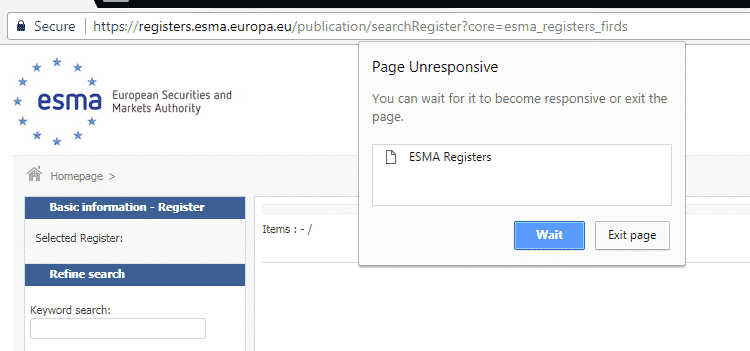It’s the beginning of tax season across much of the world, forcing cryptocurrency holders to work out how to declare their digital assets.
In Singapore, for example, Cryptocurrencies are defined as goods that are liable for the seven percent Goods and Services Tax.
Meanwhile, in Hong Kong, cryptocurrencies are virtual commodities, which are not taxed as goods, but any profit made in trading must be declared as income.
Cryptocurrencies exist outside of national legal frameworks. They’re available to buy on international exchanges across multiple jurisdictions, so it can be challenging to determine where tax is liable to be paid.
While the consequences of cryptocurrency tax evasion are as yet unknown, many governments have been quick to highlight that this asset class is one they’re focusing on closely.

Vincent Chok is the Founder and Group CEO of Legacy Trust Company
Even the most seasoned tax professional can struggle to keep up with cryptocurrency regulations. So how can a digital asset holder ensure they are complying with the right rules?
It’s worth the cryptocurrency world making comparisons to and learning how the traditional financial world navigates the complexity of tax across borders.
A Global Currency without Global Regulations
One of the fundamental issues of cryptocurrency taxes is where they are liable to be paid.
Most jurisdictions have different regulations, but generally, a cryptocurrency is treated as an asset acquired for capital gains or traded for business income - not an asset that produces personal income, like a bank account that produces interest.
As a general rule, the country that an asset is held in is the country that the asset is liable to be taxed in.
Yet the decentralized nature of cryptocurrency complicates this.
A digital asset, purchased with US dollars, from an Exchange in Singapore, traded for another cryptocurrency with an individual in India, then stored in a cold wallet in Mexico, by a British citizen - has no clear tax implication.
American citizens face an additional regulatory burden, as they are expected to pay taxes on all of their income - regardless of where they reside.
Despite a lack of clarity around cryptocurrency tax liability, individuals are expected to adhere to regulations that change throughout the tax year - without being given clear guidelines.
Complying Can Be Complicated
The implications of not reporting cryptocurrency tax gains and losses remain a mystery - but governments worldwide have made it known that virtual currency tax compliance is in its sights.
While governments put great effort into instilling fear around the repercussions of tax evasion into the individual cryptocurrency holder, very little of that is boiling over into actionable guidelines.
This is confusing for individuals, who know they are liable to pay something, but determining the amount and how to lodge it poses a challenge.
With the line between property and security, or personal gain or business income, remaining stubbornly undefined, individuals are exposed: liable without being fully aware of the implications of their holdings.
Even tax experts are avoiding offering firm advice to protect themselves from unknown consequences.
While digital assets may seem secure in their digital and relative anonymity, they are easily taxed or confiscated at the point they interact with the physical world.
This means digital assets can be seized when spent on real-world assets, being invested in traditional financial products, or even at the point they are being inherited, posthumously.
Traditional accounting cannot even be relied on, as exchanges are unable to provide adequate reporting - despite being able to share user details with national tax authorities.
So where does this leave digital asset holders?
Following the Rules Doesn’t Have to Be a Headache
Despite the uncertainty, individuals can hold cryptocurrency compliantly by entrusting their digital assets to a licensed custodian or trust.
As well as offering a higher-grade of security, this frees individuals from having to navigate multiple worlds of tax regulations, deadlines, and adjustments.
Placing digital assets with a licensed trustee in Hong Kong, for example, frees the individual from having to pay Hong Kong Profits Tax, as trustees are exempt.
Taxes apply to the owner of the digital asset only if their ownership is vested, but not before. In other words, the tax liability is deferred until vesting.
This doesn’t totally remove taxation; for instance, the USA has specific tax rules that can cover an overseas trust or custodianship. USA tax counsel can provide guidance on tax-compliant custody and trust solutions by Legacy Trust: a benefit that individuals cannot access.
Decentralizing Responsibility Will Protect Digital Asset Holders
Deferral of tax liabilities and management of tax reporting, in any case, will ultimately offer liberty to users.
Placing assets with licensed trusts or custody solutions puts people in a better place to comply with legislation designed for institutions.
This removes a burden from the people who are driving cryptocurrency adoption, while helping governments to engage more effectively with the digital assets ecosystem.
With these considerations in mind, managing the taxation of digital assets in the coming tax seasons will get easier over time.
Vincent Chok is the Founder and Group CEO of Legacy Trust Company, a Hong Kong-licensed and Public Registered Trust Company.






















